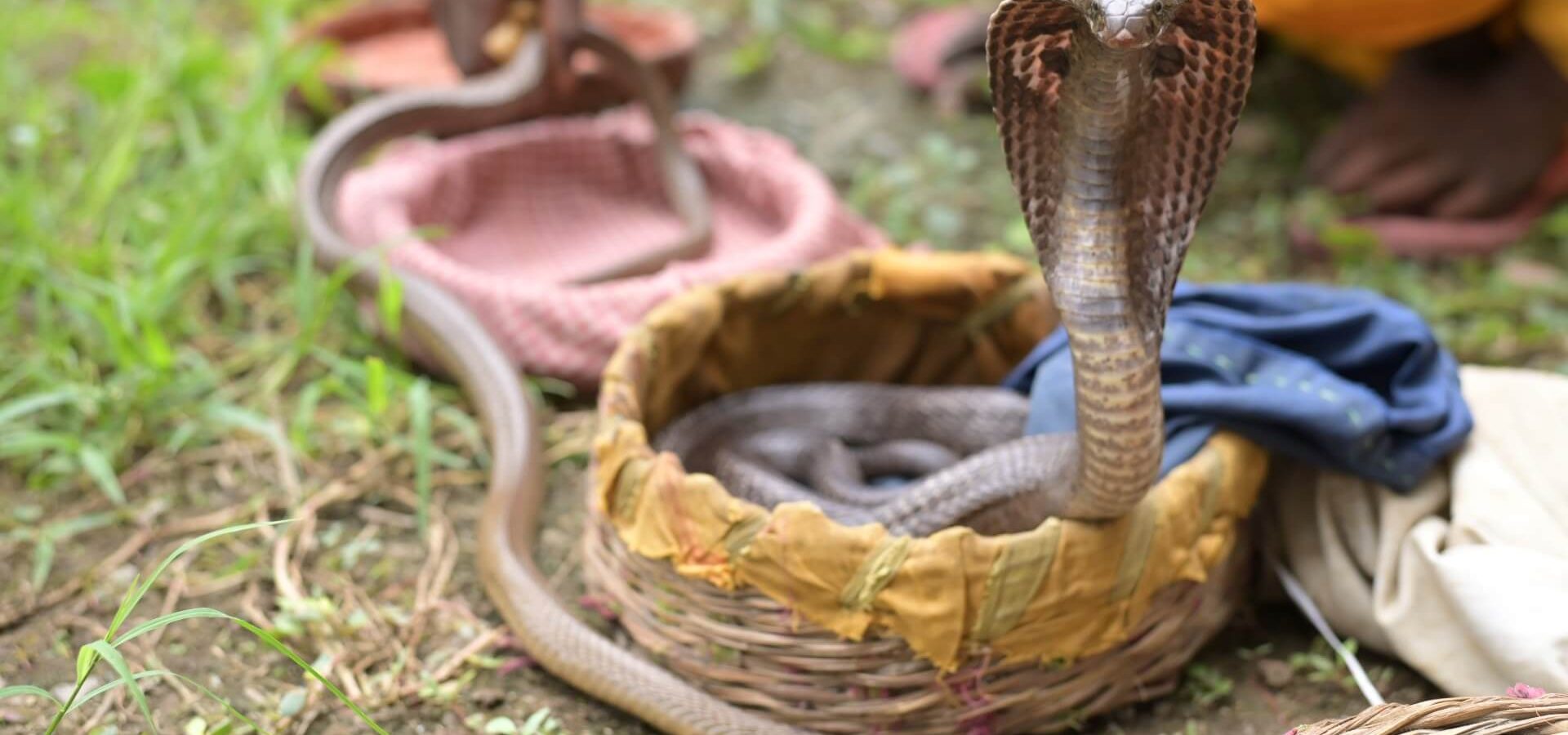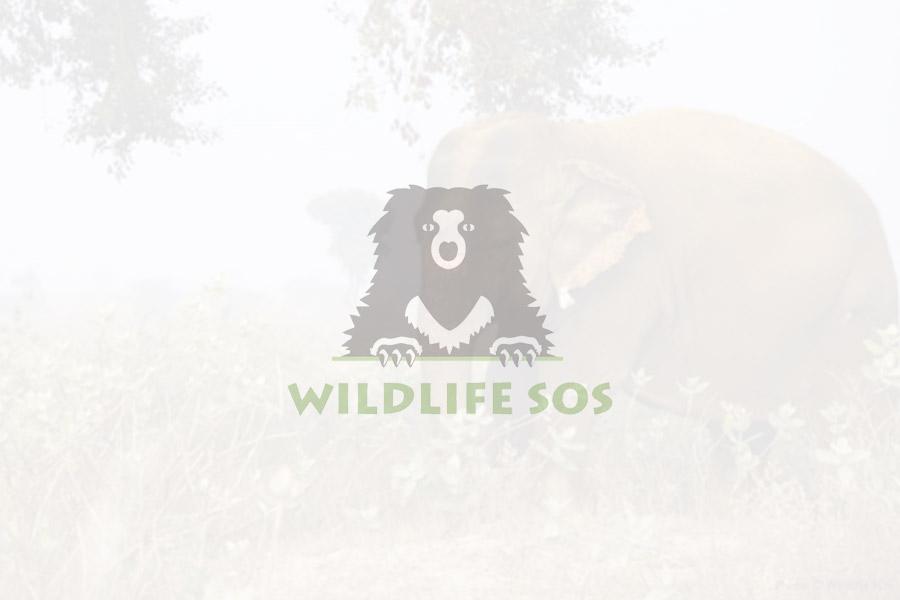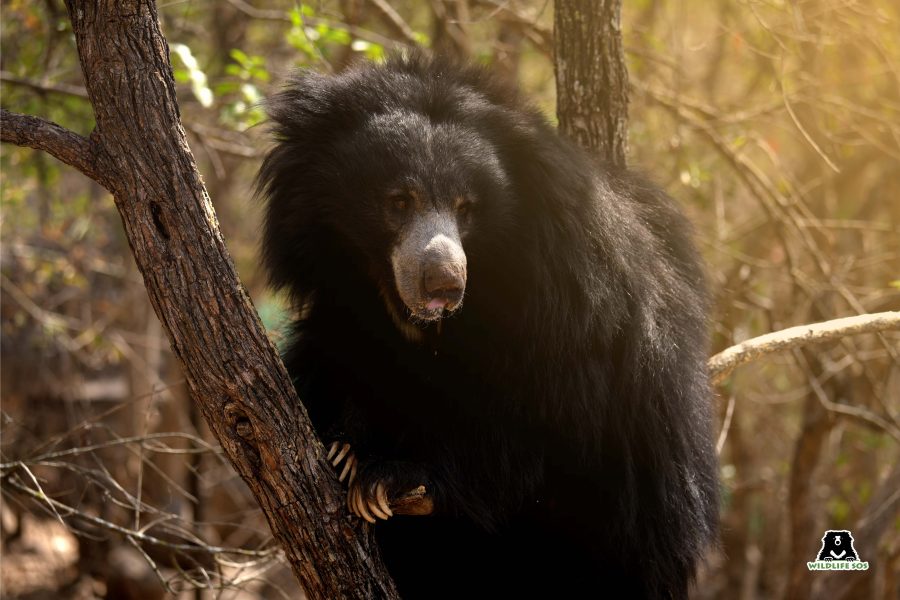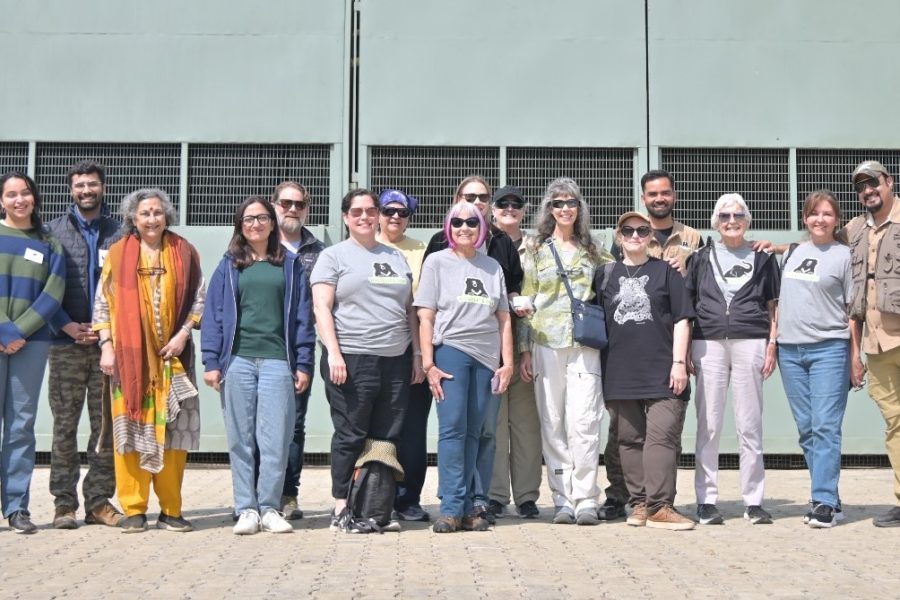The month of August is a busy month for our rescue teams. As Northern India rejoice in the monsoon season and welcome the holy month of “Shravan, our team is involved in seizures of snakes in debilitating conditions during this time – a reality we have been facing each year, in spite of the ban on snake charming.
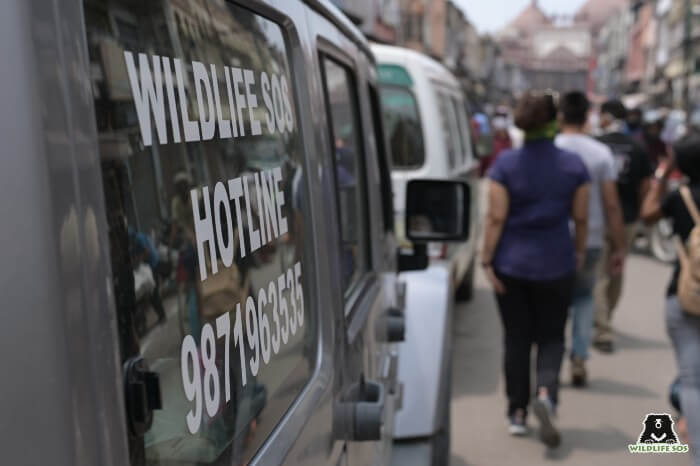
The month of Shravan is sacrosanct for Hindu devotees across different parts of North India as they flock to temples to pray for prosperity. However, right outside the temple, men, who claim to be sages, have their tangerine-coloured bags filled with snakes! Snakes are associated with the Hindu God, Lord Shiva, and devotees, who are otherwise petrified of snakes, never hesitate to bow down to them during this time and offer them milk.
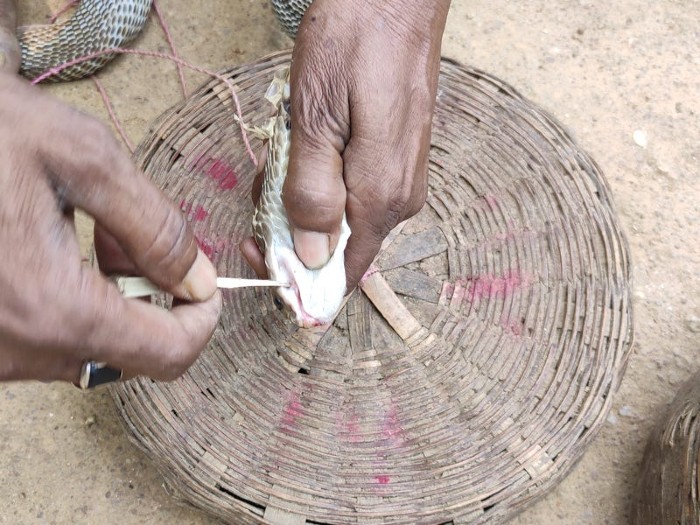
Many people are oblivious to the fact that the desperation out of which a snake drinks the milk offered to them is because they’re dehydrated and are not allowed any movement. Snake charmers sew their mouths shut, leaving just a small gap for them to drink any liquid, which is why when devotees offer milk, with honey and saffron, the traumatised snakes laps it all up.
Unlike mammals, snakes do not have the natural ability to break down the milk enzyme which reacts gravely to their body, resulting in poisoning and a painful death. You can read more about the myths that surround the snake species by reading our blog here.
On the morning of the first Monday of Shravan, our rescue team along with the officials from the Forest Department was ready to face a strenuous day ahead. The city of Agra, bursting at the seam, with people rushing to the temples early morning confirmed our suspicion that we would find more than just devotees there. Our rescue team conducted raids in 5 temples across the city in one day to catch hold of snake charmers.
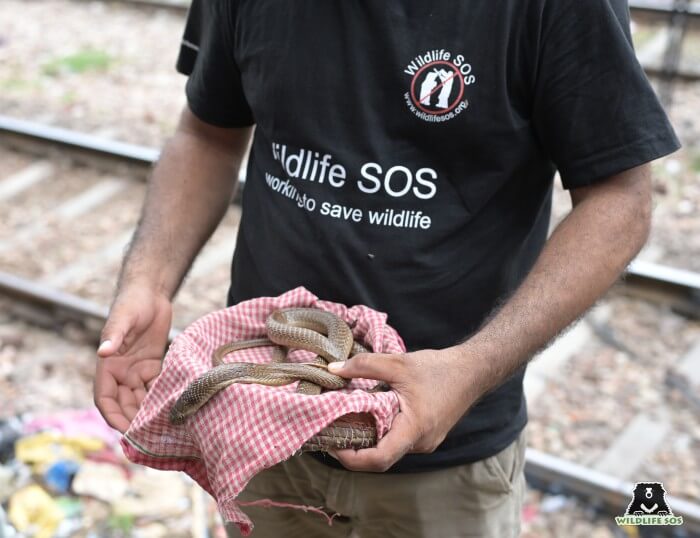
Onlookers were thrilled to be in the vicinity of snakes and handled them, without understanding the huge risk they put themselves at. Our team immediately intervened with one such gimmick when a man had placed a python around his neck, clicking selfies! We seized the snake and explained the situation at hand to the man, which left him absolutely stunned.
Protected species of snake such as Cobra, Sand boas and Rat snakes lay lifeless in the filthy bags of the snake charmers. Our rescuers immediately extracted the snakes from the bag and the charmers were apprehended. Our team took the opportunity to talk to the devotees and passers-by about discouraging this practice and explaining to them the stress that a snake has to go through for this ritual.
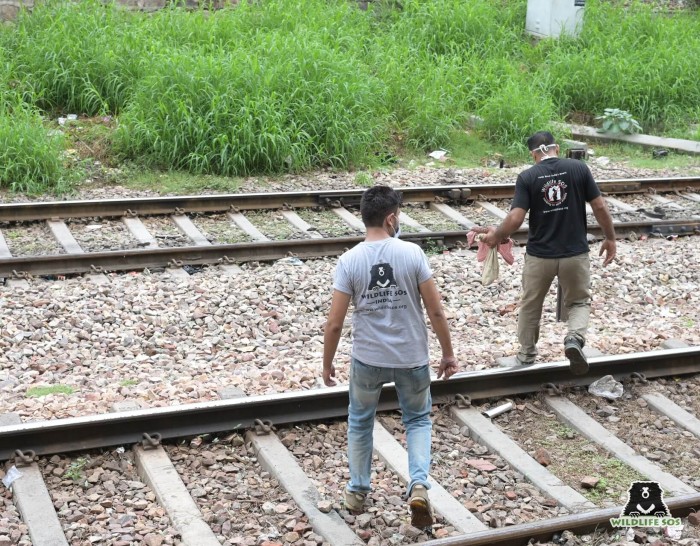
Cobras, rat snakes, sand boas, black-headed royal snakes are captured from the wild and brutally de-fanged. The snakes abused during this time have their mouths stitched, leaving them famished and parched, along with severely paralyzing pain.
A total of 24 snakes were seized during the first round of seizures – 16 cobras, 4 rat snakes and 4 common sand boas. The cobras were defanged and all the snakes were severely dehydrated, and under immense stress from the ordeal they were put through. The snake baskets reeked and no proper hygiene was maintained, thus implying that the snakes were kept in abhorrent conditions.
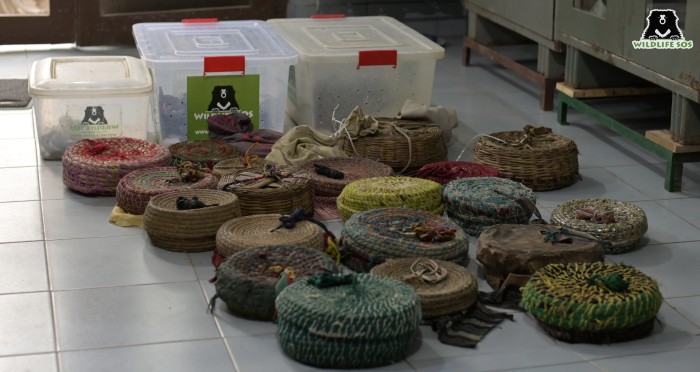
Our veterinary team carefully removed the stitches from a rat snake’s mouth that had been sewn shut, as it writhed in pain and discomfort. The mouth was cleaned with saline solution afterwards and the snake was put in a bucket of cool water for necessary disinfection and to cool them down as the day temperature crossed 40 degrees. The parched snakes drank water to everyone’s relief and remained under medical observation.
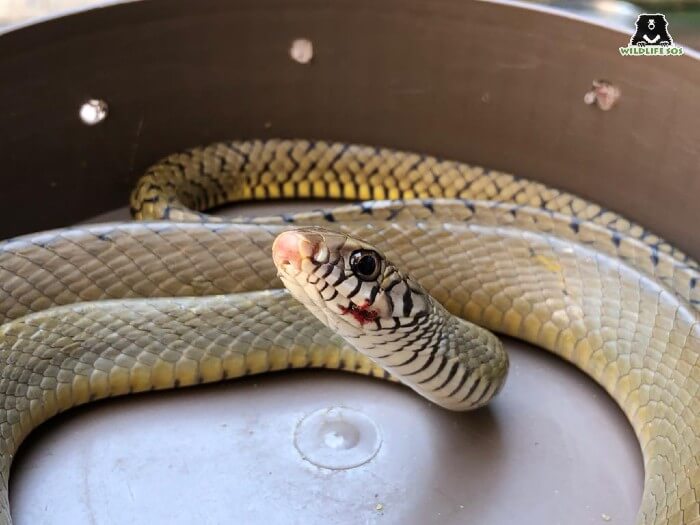
The following Friday was Nag Panchami, which is a festival dedicated to the worship of snakes. Ironic as it seems, no one realizes that the only way to respect a species is to let them remain in the wild and thrive there. After receiving a call for snake charmers being spotted outside temples across the city of Agra, our rescue team dashed to the spot once again.
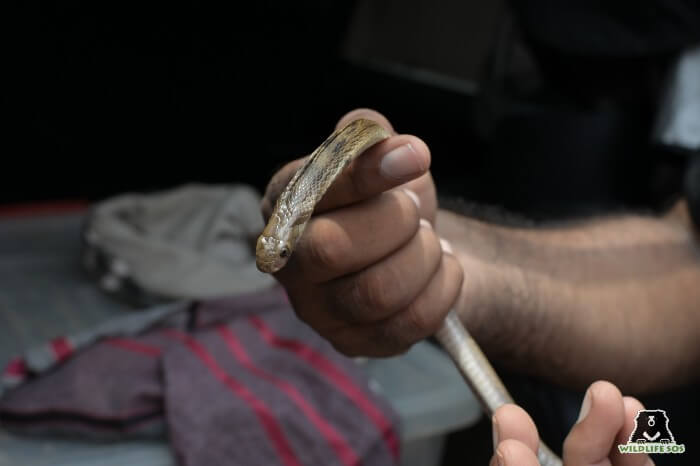
A total of 23 snakes were seized on the day of Nag Panchami – 17 cobras, 2 common sand boas, 3 rat snakes and 1 black-headed royal snake. As soon as the snake charmers saw our team approaching, many of them fled the scene, leaving their snake baskets behind, tightly shut with the snake trapped inside. Most of them abandoned the snakes at the side of the road, but our team immediately rushed to their aid and rescued them.
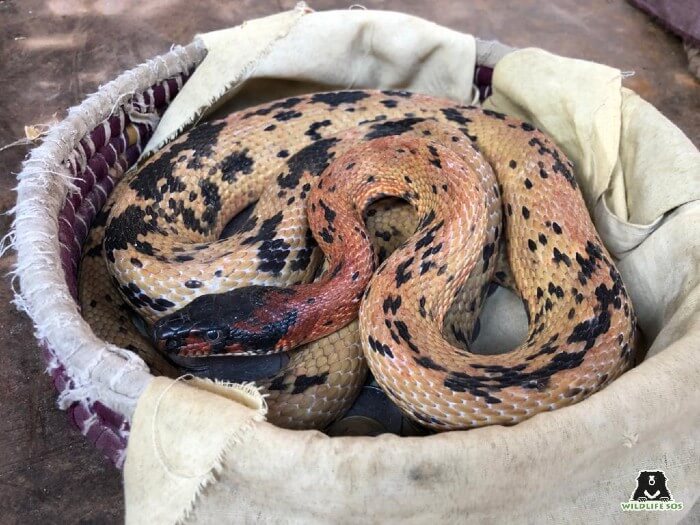
The rescued snakes were kept under medical observation and treatment before being released back into the wild. Their stitched mouths were carefully unstitched and treated with the necessary medication to stabilise their condition. The most common ailments that these rescued snakes suffer from are severe dehydration, starvation, broken and infected fangs in the case of venomous snakes like the cobras, and even, serious bacterial infection. The crude methods of de-fanging a snake or removing their venom glands with the help of a knife, puts the life of the snake at a grave risk, often ensuring that they are never able to survive in the wild again.
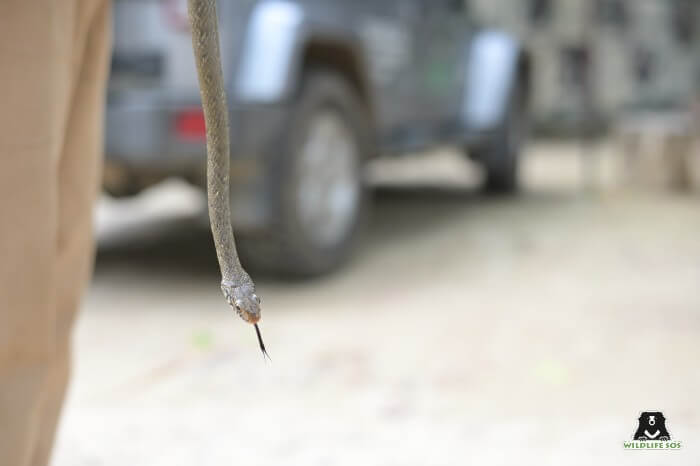
Due to their rough handling by the snake charmers, many snakes end up injuring themselves, losing their sight and even ingesting the filth they are surrounded with.
Snake charming was banned by law in 1991 but continues under the garb of tradition primarily due to the indiscriminate demand. The devotees who worship Lord Shiva turn a blind eye to the illegal wildlife trade they encourage when they give snakes milk and honey, practically poisoning them.
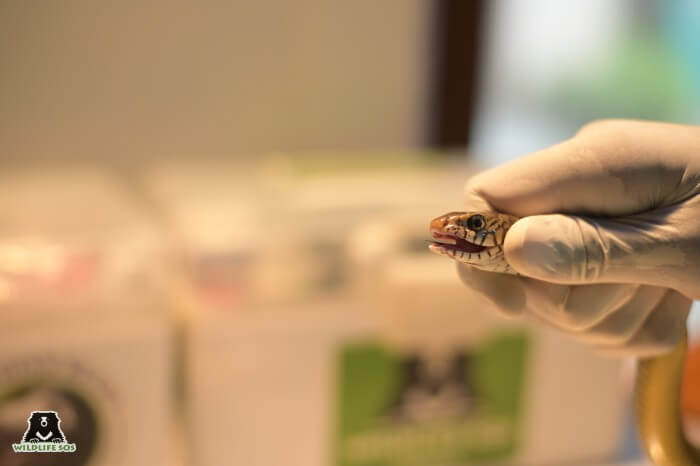
Wildlife SOS and the Forest Department urges people to immediately reach out to our rescue helplines or the Forest Department when they see a snake charmer with a snake under their possession. We request people to discourage this cruel practice as it leads to a rise in demand, directly impacting the capture of snakes from the wild.
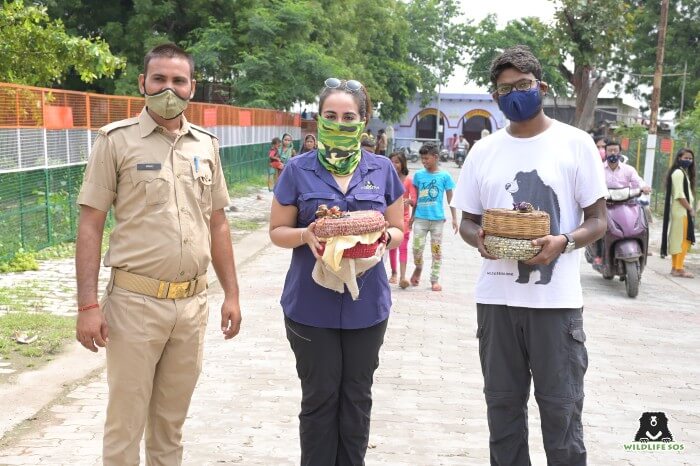
Watch the full video of the snake seizures for this year and how our team carried out the entire rescue operation.
If you spot any wild animal in distress, please reach out to our rescue helpline numbers.
Delhi NCR – +91-9871963535
Agra & Mathura in Uttar Pradesh – +91-9917109666
Vadodara, Gujarat – +91-9825011117
Jammu and Kashmir – +91 7006692300, +91 9419778280

